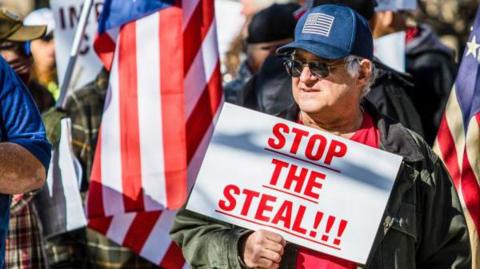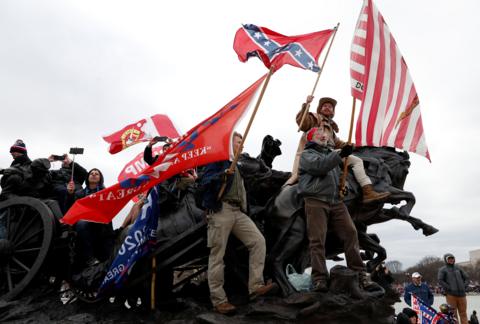Experts worry the burst of misinformation just before election day could undermine people's trust in the results - or lead to threats and violence in the lead-up to the election and beyond.
It's happened before.
In the hours and days that followed the 2020 presidential election, while votes were still being counted, then-President Trump turned to social media to allege fraud and falsely claim that he was the real winner of the election. "Stop the steal" became a slogan of his supporters' movement to overturn the results.
On social media, chatrooms and during street protests, conspiracy theorists alleged widespread voter fraud, culminating with a riot at the US Capitol on 6 January 2021.
Meanwhile, in battleground states like Georgia, election officials - civil servants whose job it is to oversee the election - faced death threats.
While false claims about voting ramped up after the 2020 vote, groups that monitor this kind of activity say this year it has started well before election day.
Wendy Via, founder of the Global Project Against Hate and Extremism (GPAHE), said some far-right and right-wing activists “are preparing themselves for the election to be stolen in a way they weren’t in 2020”.
“We cannot overstate the role of conspiracy theories in all of this,” she said.
These doubts have already reached Trump supporters on the ground. At a rally this week in Wisconsin, another key swing state, a number of people said they believed only illegal activity would prevent the Republican nominee from winning.
“I feel very confident about Trump, as long as there’s no cheating,” said Brad Miller of Green Bay, who mentioned that he’d already heard rumours about fraud. “Our only hope is that it’s not big enough to change the result.”
After the 2020 election, dozens of court cases alleging election fraud were lodged by Trump's team across multiple states, but none succeeded.

